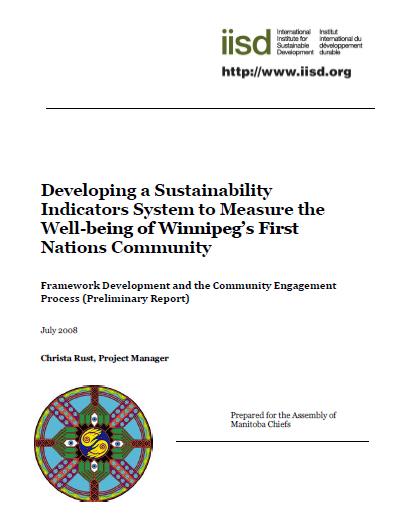First Nations people have been counted and studied since the time of early contact. The data that have been collected have largely been used to tell stories about First Nations people, not tell First Nations stories. Developing an indicator system for Winnipeg’s First Nations community is an opportunity for the First Nations people of this city to tell their story.
Over the past year, the International Institute for Sustainable Development (IISD) has been working on a joint project with the Assembly of Manitoba Chiefs (AMC) to measure the well-being of Winnipeg First Nations community.
Measures were sought to illuminate the current state of the urban First Nations community, what course the community is on, and how far the community is from its common-vision of the future. With this knowledge comes the power to effect positive change, celebrate success, and reconnect and empower the community.
The project was designed with a bottom-up approach that directly engaged the grassroots community to accurately frame, identify and measure the well-being of the community through a series of semi-structured forums. In these forums, First Nations people and their service sector providers were directly engaged to help us understand the issues and concerns of the community.
One of the most powerful aspects of this process has been the ability to bring individuals with different stories and experiences together and unite them on common issues and concerns. The open dialogue and sharing has created an enriching process for all that are a part of the work. The next step envisioned in this project is to unite the community in the development of a vision for the future. With the vision and baseline indicators, the community will have the tools to set goals, monitor progress and effect positive change.





